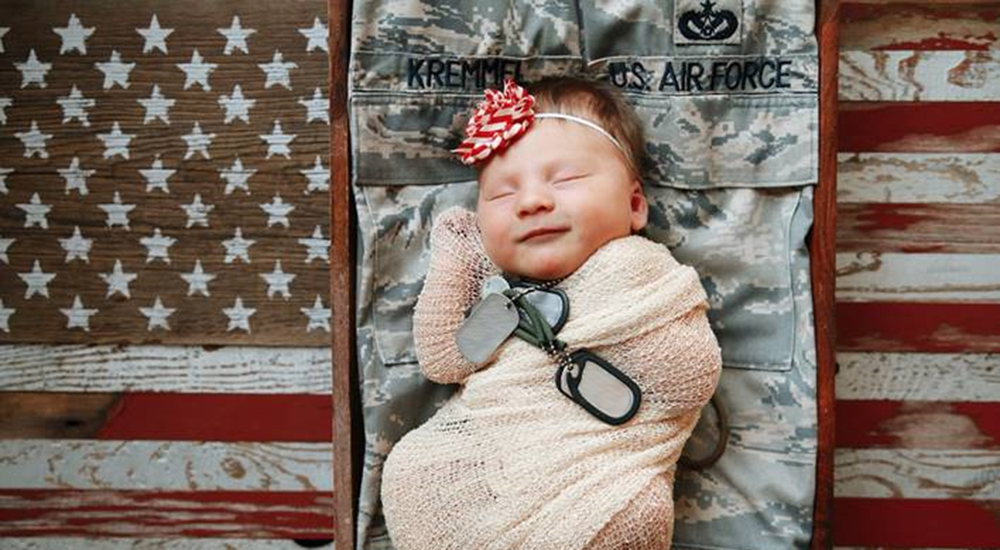VA’s In Vitro Fertilization/Assisted Reproductive Technologies program helped one couple’s dream come true.
Retired Air Force Major Jacob Kremmel and his wife, Christina, recalled how tough it was trying to conceive after marrying in 2014.
The Kremmels were only first identifying their fertility challenges in 2017. That’s when Kremmel heard news that Congress authorized IVF/ART for eligible Veterans with service-connected reproductive injuries.
“VA tested my testosterone, hormones and fertility,” Kremmel said. “I had low-T and sperm issues. Fortunately, VA began the In Vitro Fertilization/Assisted Reproductive Technologies program (IVF/ART) about this time. I became an advocate for IVF/ART through VA. I didn’t know much about the process, nor did my VA providers. It was a learning process for all of us.”
VA referred the Kremmels to the Missouri Center for Reproductive Medicine in Chesterfield, MO.
“That’s when our blessing began,” Kremmel, now 44, said.
The journey
VA provides fertility evaluation and several treatments to all enrolled Veterans under the VA medical benefits package. These include infertility counseling, laboratory blood testing, genetic counseling, sperm testing, ultrasounds, surgery, vasectomy reversal or tubal ligation, medication and other treatments.
If the Veteran has a service-connected condition that causes the infertility or if the treatment for their service-connected condition causes infertility, they may be eligible for IVF/ART.
“My biggest fears were not having kids at all,” Kremmel said. “Not having viable sperm or eggs. That we couldn’t afford IVF or that we couldn’t navigate the system.”
Kremmel met all eligibility criteria for IVF, a form of assisted reproductive technology to collect mature eggs and fertilize them with sperm outside the body. The embryo(s) are then placed in the uterus.
One full IVF cycle can take nearly three weeks. The VA IVF/ART benefit authorizes six cycle attempts to create embryos to achieve three embryo transfers. The Kremmels would need seven cycles (one cycle funded by the Kremmels).
Two embryos, a boy and a girl, were viable, but they lost the boy at eight weeks.
Ava – a VA baby and a blessing
Veterans give their best years in defense of this great nation and may have been injured, wounded and/or exposed to things that harm reproductive mechanisms.
“Then we got Ava,” Kremmel said. “We hope VA increases the number of cycles and expands donor services. We’re forever grateful to VA. Without them we wouldn’t have our daughter. When it’s time, VA gives options to fulfill one of the greatest callings in one’s life. We’re happy, we’re healthy and we’re a family, thanks to VA.”
Topics in this story
More Stories
Bob Jesse Award celebrates the achievements of a VA employee and a team or department that exemplifies innovative practices within VA.
The Medical Foster Home program offers Veterans an alternative to nursing homes.
Watch the Under Secretary for Health and a panel of experts discuss VA Health Connect tele-emergency care.








Wow! Congratulations on baby Ava!